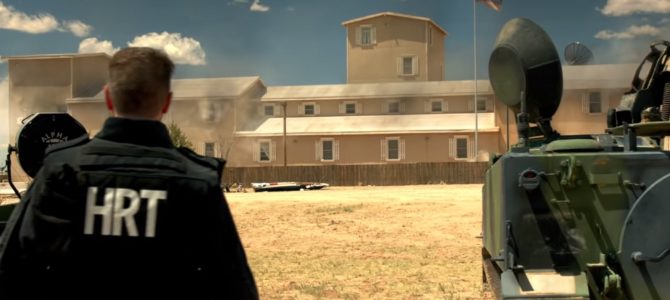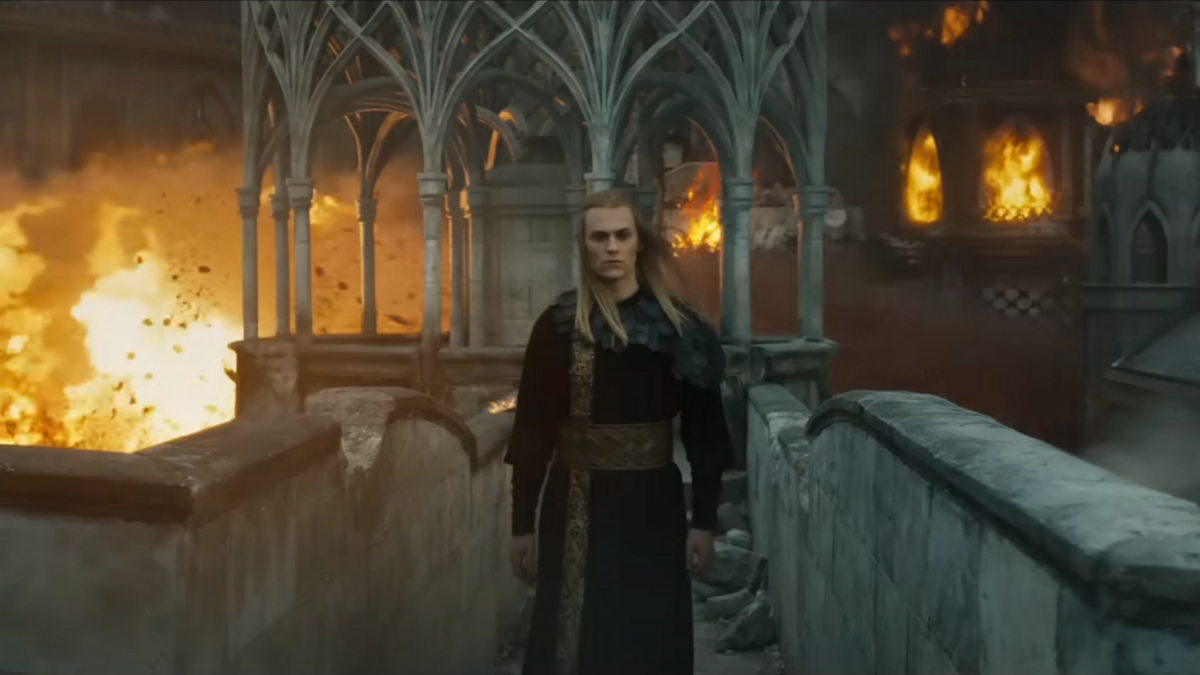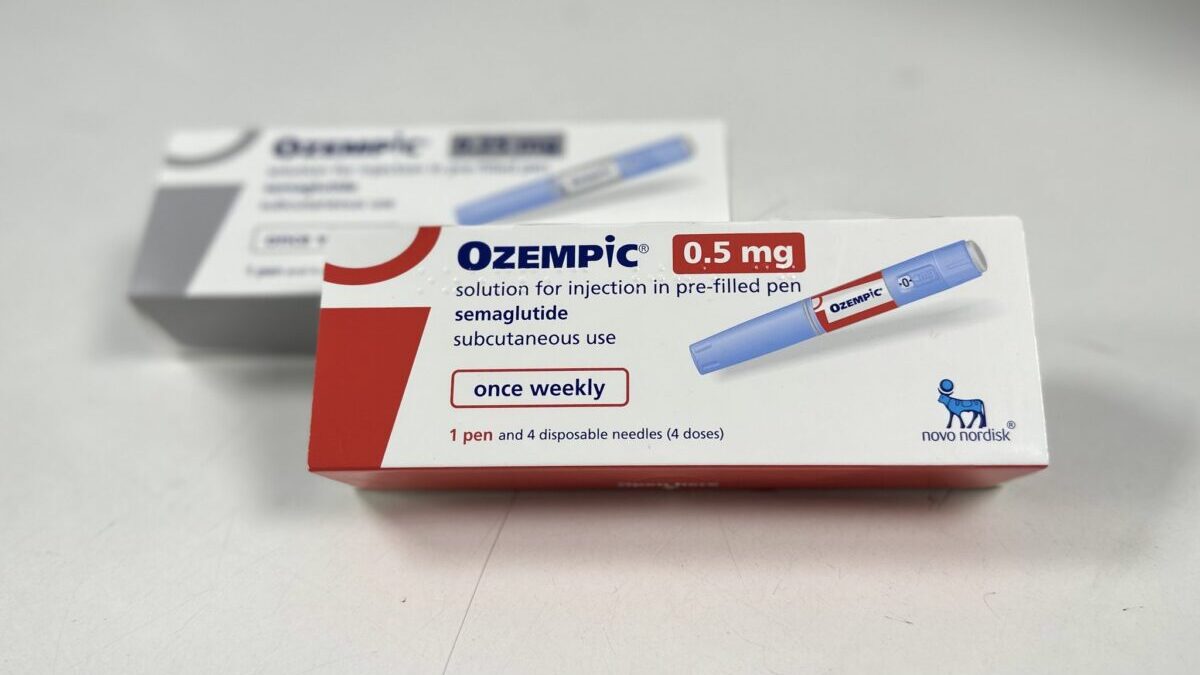
During federal agents’ 51-day siege of the Branch Davidians outside of Waco, Texas in 1993, the media was kept away. After the initial exchange of gunfire between the followers of David Koresh and agents from the Bureau of Alcohol, Tobacco and Firearms (ATF), but before the fire that killed the majority of the Seventh Day Adventist offshoot, the Davidians filmed themselves for the media.
Many, including Koresh, were injured. They talked to the camera and showed off the sect’s many children. The feds refused to release this footage for fear it would humanize the people inside. At one point, the Davidians dropped a banner that read, “God help us, we want the press.”
They didn’t get it, but it may not have helped much. The feds may not have controlled whether the Davidians would leave, but they controlled access to them completely. The end result of a firearms raid was 76 people dead, and a future terrorist named Timothy McVeigh motivated to kill 168 more people two years later.
Whether Koresh, arguably a cult leader and more than likely a child abuser, deserved to be in jail is not really the point. The initial raid and its bloody conclusion was a nasty blot on the face of U.S. law enforcement. But common ground over the lives lost too often melts into Rachel Maddow-esque outrage over the fact that the Right still uses these outrages as a rallying call.
Media Heroizes Needless Killings
Anti-government documentaries about Waco range from the toe-tippingy conspiratorial in “Waco: The Rule of Engagement” to Alex Jones’ blatherings in “Waco: The Big Lie.” In 2013, 20 years after the raid, CNN broadcast an appallingly slanted program that was more or less an ode to the dead ATF agents in the initial raid. The participants, almost all ex-law enforcement, had the decency to tear up about the dead children. But the final, lingering shot is of the ATF retreating from their idiotic raid. The entire production is dedicated to the agents who died.
This portrayal lingered in pop culture, subtly shaping ‘90s staple “The X-Files.” In a brilliantly unsubtle 1999 “South Park” episode, the adult characters throw a party while the ATF, somehow convinced they’re a cult, try to kill everyone before they can commit mass suicide.
But the worst thing ever created about the raid was a piece of propaganda now disavowed and deeply regretted by its author. Frantically written after the raid and before the fire, but broadcast in May 1993, was an NBC movie called “In the Line of Duty: Ambush at Waco.” It sang the praises of the ATF agents who were killed, and made Koresh and the Davidians villains and brainwashed flock respectively.
A slow trickle of people left the Davidian compound during the standoff. Only nine people escaped the fire. Several of those, along with one not present on that day, were later sentenced to five- to 50-year prison sentences by a judge who overruled the jury. This was in spite of the fact that in Texas, the lethal force the Davidians used to defend themselves was legal.
In 1995, McVeigh put the final nail in the coffin, burying the notion that Waco might ever be allowed to be about its own victims under the rubble of the Murrah Building. Now, to be mad about Waco is to signal that you’re somehow part of the far, untrustworthy, undoubtedly gun-carrying Right.
The Davidians Get Their Day in the Public Eye
Surviving Davidians have gotten occasional moments to speak their piece, and some of the children sent away earlier speak of brutality at the hands of the group. However, the narrative has mostly not been in their hands. Paramount’s six-part “Waco” miniseries remedies this. In spite of negative reviews from outlets such as the New Republic and The Ringer, this is an astoundingly adult and sympathetic attempt at telling the story right.
Mostly we have the Davidians, with Koresh played by “Friday Night Lights’” Taylor Kitsch. Our outside main character is FBI negotiator Gary Noesner, who is portrayed as being deeply shaken by Ruby Ridge and the killing of Vicki Weaver by an FBI sniper. Noesner, portrayed solemnly by Michael Shannon, is nearly the lone voice of sanity among the crowd of frustrated, antsy feds who want to kick some butt. But it’s the Davidians who mostly get their narrative due, and it’s long past time for that, no matter how uncomfortable it makes some watchers.
Outlets such as the Atlantic make a decent case that the draw of Koresh, whom Kitsch portrays with 80 percent charisma, 20 percent menace, is still not understandable after watching the film. But perhaps, as they say, you had to be there. The larger message that comes across is that these were real people who had doubts in their leader, but felt they were doing right. These were real people, not just the disturbing, but distant sight of a burning compound on April 19, not the terrorist attack committed two years later.
Nobody in these reviews seems to address the astoundingly negative light with which “Waco” paints the ATF. However, it doesn’t feel baseless to suspect this is one reason the response to the show has been so tepid. The Federal Bureau of Investigation en masse has its flaws, particularly when it’s letting its people assassinate mothers holding babies.
The nasty blame game and power struggle during and before Ruby Ridge is brilliantly portrayed in the first episode. The U.S. marshalls, the FBI, and the ATF all share the blame for Ruby Ridge. But the ATF was the only agency facing elimination when the Branch Davidians and their collection of guns came onto their radar screen.
‘Waco’ Shows the Facts that Make ATF Look Bad
The show refuses to skimp on some truths that may wound anyone who believes in a federal gun agency, but doesn’t want to admit the one America has is a joke. This narrative story accurately portrays the ATF’s “Operation Showtime” being planned for PR purposes.
It shows the Davidians knew the men who suddenly moved in across the street were not what they seemed. It lets us see that the Davidians knew the raid was coming, and that they let the undercover agent who was present leave safely. It shows that members called 911 and the local sheriff in a panic over the firefight. It explicitly and accurately mentions that Koresh often left the compound to go jogging, and that he could have been grabbed by law enforcement without endangering scores of innocents.
Kitsch makes a phenomenal Koresh. He’s charming, kind, and seemingly earnest, with an undercurrent of menace. He radiates confidence in his power to convert everyone, from young musician David Thibaudeau (Rory Culkin) to the undercover agent played by John Leguizamo.
He’s got his followers in his grasp, but that doesn’t make them robots. The motivation for their devotion perhaps is not tangible, and that can frustrate some viewers. But, honestly, we can handle films like “Downfall,” in which Adolph Hitler both raves in his bunker and smiles paternally at prospective secretaries, or those like “Dead Man Walking,” where crimes and the death penalty are both condemned.
Uncomfortable movies about uncomfortable people should make us uncomfortable, and shift our loyalties. Better still when those movies are as well-crafted as “Waco” is, from its acting, to its confident direction, to its nuance that is so easily confused with tepidness.
Trusting Viewers’ Own Discernment
One could argue the Davidians are portrayed too subtly, that Noesner is too good, but the negativity with which the series portrays ATF and its true, bad decisions is commendable. Another critique that could be leveled at the show is that the background characters are too white. This was an international group of people, and a third of them were black or Hispanic. But that whitewashing has been around for decades. It’s much easier to assume that McVeigh blew up a building in anger over the fate of only white people.
But after films such as CNN’s 2013 disaster and the 1993 scripted ATF worship-fest, the Paramount series feels revelatory, sophisticated, and only fair. A New Republic reviewer argued that when Thibaudeau, whose book the series is partially based on, is married off to a young woman who has already had Koresh’s child, it’s supposed to be cute. No, it’s a subtle signpost that there are wrong things going on here.
Again, this series is trusting the viewer to a daring degree. We know that marrying all the wives of the Davidians makes Koresh seem like a shyster, whether he has convinced himself of his own holiness or not. We know that casual mentions of impregnating a 12-year-old, parental permission or not, are skin-crawling. We know the Davidians have what could be dubbed an arsenal.
We also get to see people happily living together and feeling like all of this is worth it, and that the higher power wants them there. Did reviewers want a film that showed how unappealing this sect was? How Koresh had nothing to draw people in? How much hand-holding do we need as viewers to appreciate that we don’t understand why these people are here, but here they are, human, believing, but not without question, and caught in an escalating disaster?
It’s Not a Crime to Live in a Commune with Guns
The audience sees flawed people making bad choices, including to stick with a stubborn child abuser, but the worst, most fatal choices come from federal law enforcement, and that’s the real problem. The agency whose task is to control guns are the cynical, blundering idiots, and that’s bad for the cause. The series and its audacity in humanizing the Davidians is, as the New Republic claimed, “a pure defense, a vindication of the rights of fringe groups to exist with huge stockpiles of guns without attracting the eye of law enforcement.”
Although the final episode has not yet been broadcast, and therefore we don’t know how they will portray the fire, it’s notable that the show chooses to go with the theory that ATF agents shot the Davidians’ dogs, thereby sparking the initial gun battle. This is not confirmed, but if it is true it means the deadly confrontations at both Ruby Ridge and Waco were fueled by the same thing. Law enforcement subsequently undervalued the human beings that they are ostensibly there to protect, leading to the kind of tragedies we see repeated on a smaller scale today.
After 25 years, nobody thinks Waco was great. But it took a while, and any kind of specific knowledge or indignation over it is a little too McVeigh. It’s bad that kids died, and consideration of the depth of the screw-up was momentarily en vogue in the late ‘90s, but there are too many hot-button issues woven into the incident for anyone to yield partisan ground.
Guns and child abuse and religious freedom are unpleasantly mixed together with how federal law enforcement should respond to situations. We must distance ourselves from both Waco and its prequel at Ruby Ridge by reminding audiences that we’re talking about a racist here, or we mean cult members there. It’s not as if they were saints, you know.









